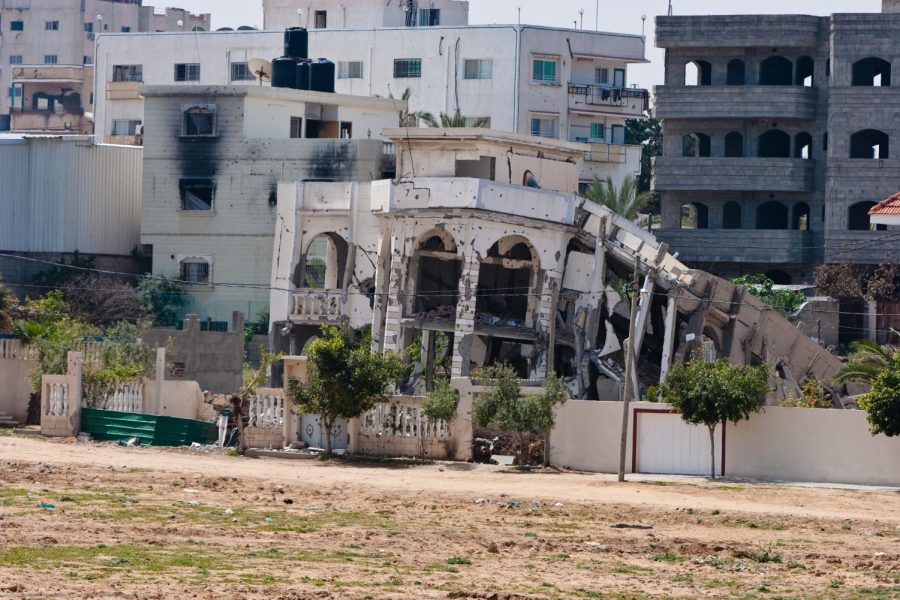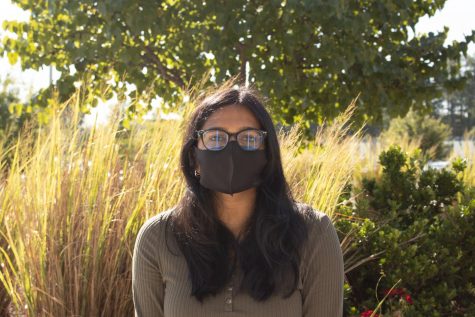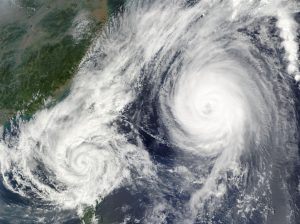Israeli War Planes Attack Gaza for the Second Time this Week
Conflicts between Israel and Gaza have been occurring for decades, often ruining homes and buildings. Image via. Wikimedia Commons
April 22, 2022
After the fall of the Ottoman Empire during WW1, Britain took control of Palestine which was occupied by the Jewish minority and the Arab majority.
The tensions between the groups rose when Britain wanted to establish a “national home” in the area for Jews. The British movement was opposed by both the Jewish and the Arabs.
When the number of Jews increased, escaping persecution in other areas of the world, violence between the Jews and Arabs grew.
In 1947, the UN voted for Palestine to be split into two separate Jewish and Arab states.
While the plan was accepted by Jewish leaders it was rejected by the Arab side and never put in place.
In 1948 when the British and the rest of the world found themselves unable to solve the problem, Jewish leaders created the state of Israel.
Gaza is a Palestinian area on the eastern coast of the Mediterranean Sea. Gaza is ruled by the Palestinian militant group Hamas, which has fought Israel many times. Israel and Palestine both have differing views on the conflicts in the area as Palestinians in Gaza and the West Bank say they suffer because of Israeli actions and restrictions and Israel says that they are only acting to protect themselves from Palestinian violence.
There are many problems between the two such as: what should happen to Palestinian refugees; whether Jewish settlements in the occupied West Bank should stay or be removed; whether the two sides should share Jerusalem; and whether a Palestinian state should be created alongside Israel.
There have been lots of attempts at peace but the conflict has never been resolved and likely won’t be any time soon.
The BBC’s Middle East editor, Jeremy Bowen has said about the conflict: “Similar things have been said by both sides in claiming victory and then essentially the seeds of the next conflict are sown. I can tell you one thing for certain – that if the status quo does not change favorably, there will be another round of this.”
These conflicts have only continued to rise since they started, heightening, even more, this year due to the Muslim holy month of Ramadan crossing over with the Jewish celebration of Passover. This week Israel has carried out air raids in the central Gaza Strip. This is the biggest escalation between the two countries since an 11-day war last year.
On Tuesday, Israel carried out its first strike on Gaza. And later on Thursday before dawn, the second air raid of the time came down, with its military saying its fighter jets attacked an underground complex used to produce rocket engines.
There were no immediate reports of casualties or deaths, but the attacks damaged several homes in the al-Bureij refugee camp in central Gaza.
Earlier that night, a rocket from Gaza was fired and struck southern Israel. The rocket caused no injuries but did cause some damage to a house. There were four other rockets also fired from Gaza but were intercepted by air defense systems.
No Palestinian groups have claimed responsibility for the rocket launches, the Hamas responded by saying in a statement that Israel’s bombing would only make Palestinians more determined to “resist the occupation and step up their support for Jerusalem and its people.”
The conflicts come after nearly a month of violence between the two groups which focused on the Al-Aqsa Mosque compound in Jerusalem which was known to Jews as the Temple Mount.
Israeli forces raided the compound on Thursday, targeting worshippers with tear gas and rubber bullets, which was responded to by Palestinian youth with petrol bombs, according to Palestinian media.
Israeli police have also said that rioters have thrown stones and petrol bombs from the mosque, claiming that “a violent splinter group is stopping Muslim worshippers from entering the mosque and causing damage to the site.”
The violence caused this week has raised fears in the area that the conflict may escalate as it had last year in Israelies 11-day assault on Gaza, which caused the death of 250 Palestinians in Gaza and 13 people in Israel.







